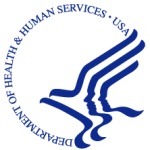- Industry: Government
- Number of terms: 33950
- Number of blossaries: 0
- Company Profile:
United States Department of Health and Human Services, Radiation Emergency Medical Management
A vaccine made by putting the gene for carcinoembryonic antigen (CEA) into the vaccinia virus. The vaccinia virus is related to the virus used to make the smallpox vaccine. CEA is a tumor marker. The vaccinia CEA vaccine may help the immune system recognize and kill cancer cells that make CEA.
Industry:Health care
A cancer vaccine made with a form of a vaccinia virus that does not cause disease in humans. It is being studied in the treatment of some types of cancer. The virus is changed in the laboratory to make human proteins that may help immune cells in the body kill tumor cells. Also called recombinant vaccinia-TRICOM vaccine and rV-TRICOM.
Industry:Health care
A nutrient that the body needs in small amounts to function and stay healthy. Vitamin A helps in vision, bone growth, reproduction, growth of epithelium (cells that line the internal and external surfaces of the body), and fighting infections. It is fat-soluble (can dissolve in fats and oils). Vitamin A is found in liver, egg yolks, and whole milk dairy products from animals and in fish oils. It can also be made in the body from a substance found in some fruits and vegetables, such as cantaloupes, carrots, spinach, and sweet potatoes. Vitamin A is being studied in the prevention and treatment of some types of cancer. Also called retinol.
Industry:Health care
A nutrient that that body needs in small amounts to function and stay healthy. Vitamin A acid is made in the body from vitamin A and helps cells to grow and develop, especially in the embryo. A form of vitamin A acid made in the laboratory is put on the skin to treat conditions such as acne and is taken by mouth to treat acute promyelocytic leukemia (a fast-growing cancer in which there are too many immature blood-forming cells in the blood and bone marrow). Vitamin A acid is being studied in the prevention and treatment of other types of cancer. Also called all-trans retinoic acid, ATRA, retinoic acid, and tretinoin.
Industry:Health care
A compound containing several or all of a group of vitamins and nutrients that the body needs in very small amounts to function and stay healthy. The B vitamins in the vitamin B complex include thiamine, riboflavin, niacin (nicotinic acid), niacinamide (nicotinamide), the vitamin B6 group (including pyridoxine, pyridoxal, pyridoxamine), biotin, pantothenic acid, folic acid, and vitamin B12. Aminobenzoic acid, inositol, and choline are sometimes included as part of the vitamin B complex. The vitamin B complex is water-soluble (can dissolve in water) and is found in yeast, seeds, eggs, liver, meat, and vegetables. Members of the vitamin B complex are being studied in the prevention and treatment of some types of cancer.
Industry:Health care
A nutrient in the vitamin B complex that the body needs in small amounts to function and stay healthy. Vitamin B1 helps some enzymes work properly, helps break down sugars in the diet, and keeps nerves and the heart healthy. It is found in pork, organ meats, peas, beans, nuts, and whole grains. Vitamin B1 is water-soluble (can dissolve in water) and must be taken in daily. Not enough vitamin B1 can cause a disease called beriberi (a condition marked by heart, nerve, and digestive disorders). Too much vitamin B1 may help cancer cells grow faster. Also called thiamine.
Industry:Health care
A nutrient in the vitamin B complex that the body needs in small amounts to function and stay healthy. Vitamin B12 helps make red blood cells, DNA, RNA, energy, and tissues, and keeps nerve cells healthy. It is found in liver, meat, eggs, poultry, shellfish, milk, and milk products. Vitamin B12 is water-soluble (can dissolve in water) and must be taken in every day. Not enough vitamin B12 can cause certain types of anemia (a condition in which the number of red blood cells is below normal) and neurologic disorders. It is being studied with folate in the prevention and treatment of some types of cancer. Also called cobalamin and cyanocobalamin.
Industry:Health care
A nutrient in the vitamin B complex that the body needs in small amounts to function and stay healthy. Vitamin B2 helps make red blood cells, helps some enzymes work properly, and keeps skin, nails, and hair healthy. It is found in milk, eggs, malted barley, organ meats, yeast, and leafy vegetables. Vitamin B2 is water-soluble (can dissolve in water) and must be taken in every day. Not enough vitamin B2 can cause anemia (a low number of red blood cells), mouth sores, and skin problems. Amounts of vitamin B2 may be higher in the blood of patients with some types of cancer. Also called riboflavin.
Industry:Health care
A nutrient in the vitamin B complex that the body needs in small amounts to function and stay healthy. Vitamin B3 helps some enzymes work properly and helps skin, nerves, and the digestive tract stay healthy. Vitamin B3 is found in many plant and animal products. It is water-soluble (can dissolve in water) and must be taken in every day. Not enough vitamin B3 can cause a disease called pellagra (a condition marked by skin, nerve, and digestive disorders). A form of vitamin B3 is being studied in the prevention of skin and other types of cancer. Vitamin B3 may help to lower blood cholesterol. Also called niacin and nicotinic acid.
Industry:Health care
A nutrient in the vitamin B complex that the body needs in small amounts to function and stay healthy. Vitamin B5 helps some enzymes use foods and make many substances used in the body and protects cells against damage from peroxides. It is found in almost all plant and animal foods. Vitamin B5 is water-soluble (can dissolve in water) and must be taken in every day. Also called pantothenic acid.
Industry:Health care
